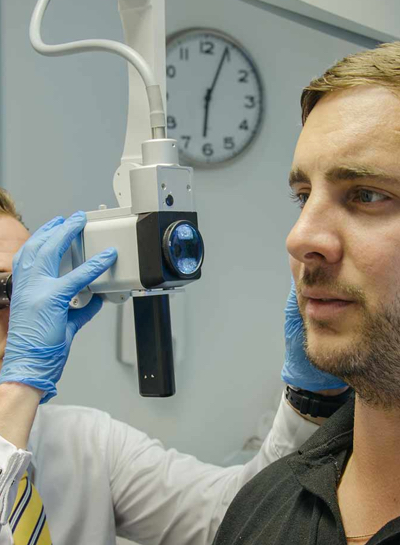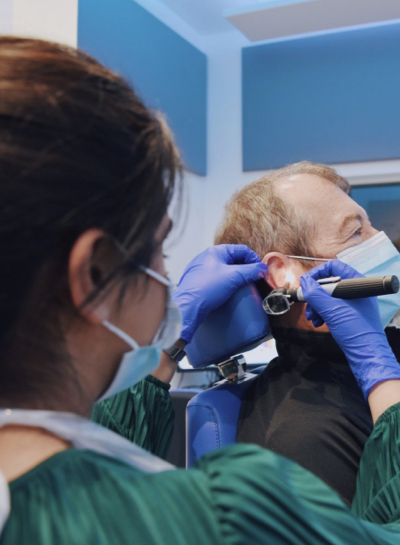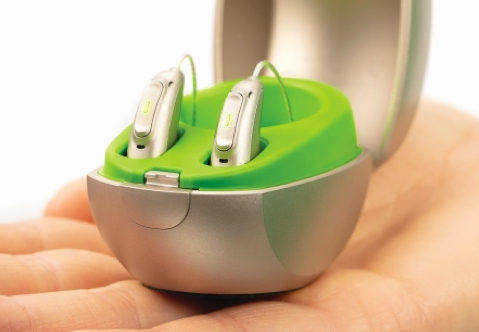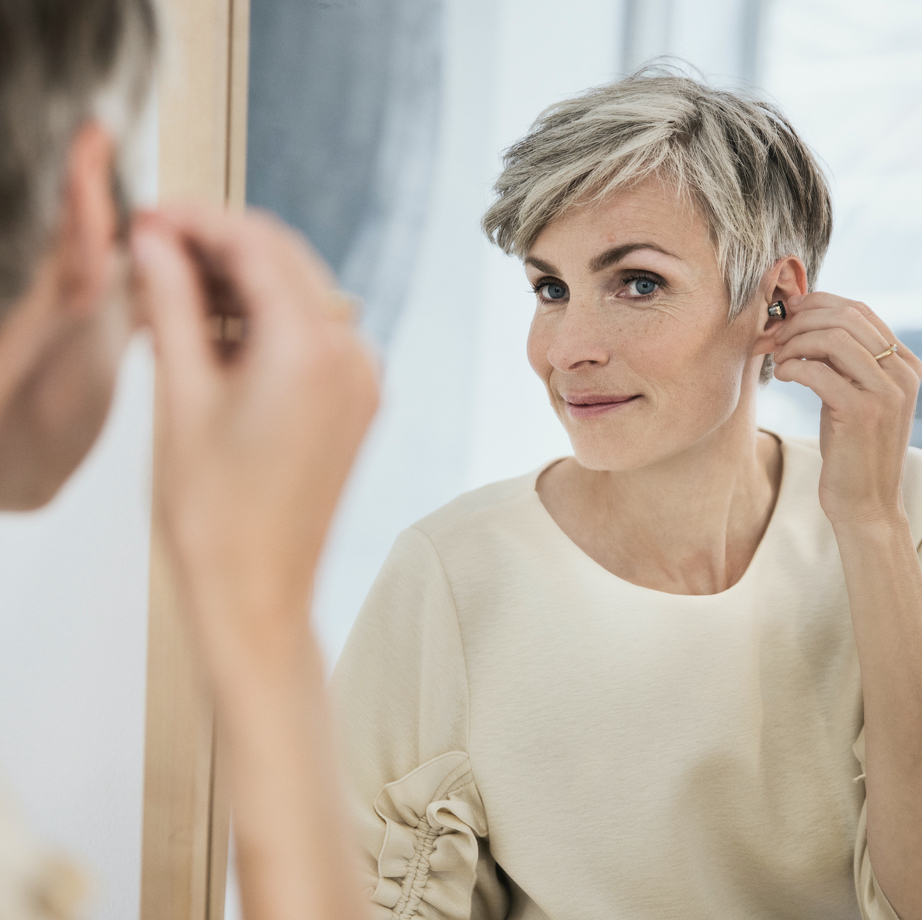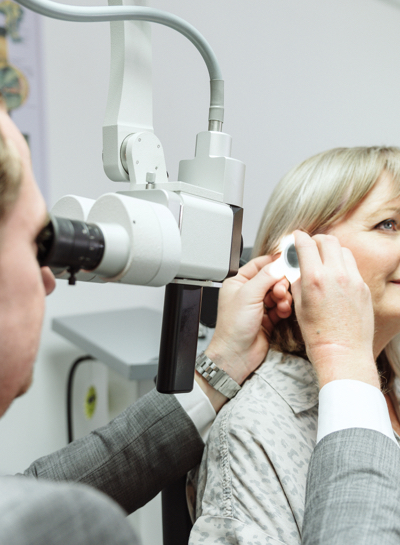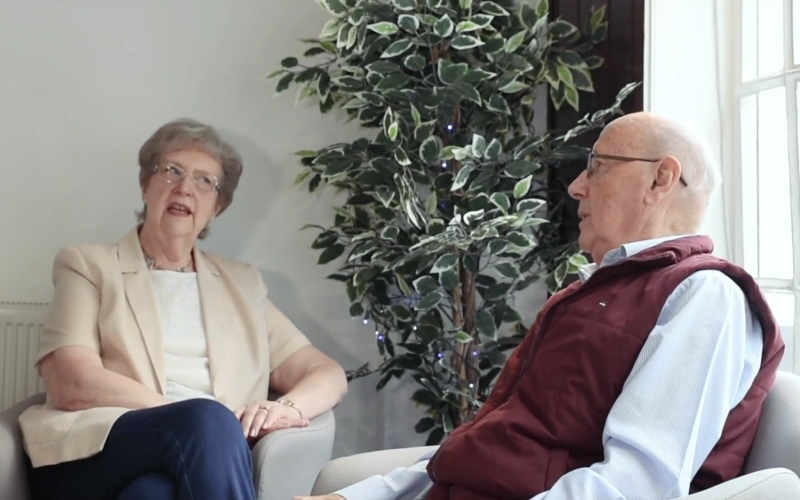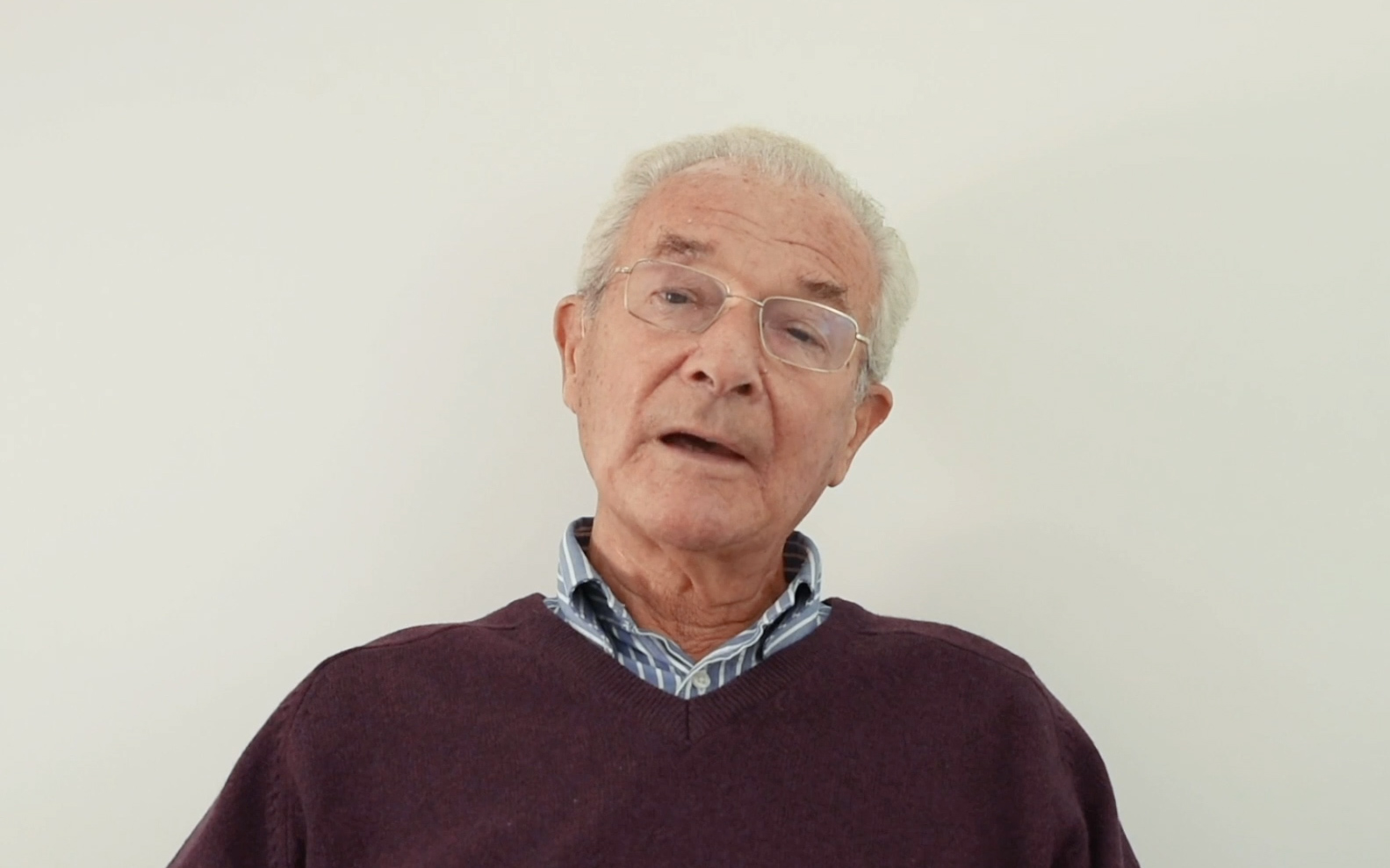Category: Tinnitus
How to effectively manage Tinnitus
4 Min read
23rd Mar 2023
How to effectively manage Tinnitus
As a hearing centre, we frequently see patients who suffer from tinnitus, a condition that affects millions of people in the UK. Tinnitus is a condition that causes ringing, buzzing, hissing or other sounds in the ears that can be persistent or intermittent and can vary in loudness and pitch. For many, it can be a debilitating condition that interferes with their quality of life.
Although tinnitus cannot be cured, thankfully it can be treated so that the symptoms are lessened. Read on to find out more.
What Causes Tinnitus?
There are several factors that can contribute to the development of tinnitus. These include exposure to loud noise, high blood pressure, stress and anxiety, and underlying hearing loss.
More than 200 medicines, including aspirin, can also cause tinnitus. If you have tinnitus and you take medicine, ask your doctor or pharmacist whether your medicine could be the cause.
Symptoms of Tinnitus
If you suffer from tinnitus, you know how frustrating and distressing it can be. The constant noise in your ears can make it difficult to concentrate, sleep, and even communicate with others. It’s a condition that can leave you feeling isolated and alone.
If you are experiencing tinnitus, you may be hearing a ringing or buzzing sound in your ears. You may also hear a hissing, whistling, or clicking sound. Some people experience it constantly while others may only experience it occasionally.
Tinnitus can also be more noticeable in quiet environments, such as when you are trying to sleep at night. For some people, it can be so severe that it interferes with their ability to hear and communicate.
Tinnitus Statistics in the UK
Nearly everyone has experienced tinnitus at one time or another. For most, it is a passing incident. However, for some, it can be a constant companion.
According to the British Tinnitus Association, approximately 10% of the population in the UK experiences tinnitus. That equates to approximately six million people. Of those people, approximately 600,000 experience tinnitus that is severe enough to impact their quality of life.
Managing Tinnitus
While there is currently no cure for tinnitus, there are several ways that it can be managed. One of the most effective ways to manage tinnitus is to seek treatment for any underlying conditions that may be contributing to the problem, such as hearing loss or high blood pressure. You may also benefit from sound therapy, which involves listening to sounds or music to distract you from the tinnitus.
Our job, and indeed our focus, is to break that cycle and give you time to recover. Using sound therapy, in combination with informed counselling and hearing aids, we can bring you significant relief. We will help you to change your emotional response to the tinnitus, helping to relieve the stress you feel.
How we create your personalised Tinnitus profile
Through these diagnostic tests, we can help direct our treatments towards your specific needs.
- Video-otoscopy – We will examine your ear canal and identify any obvious obstructions such as wax and any problems with the ear canal or eardrum.
- Ear wax removal – If we determine there is any ear wax blocking the ear canal, this will be removed easily and painlessly using micro-suction.
- High frequency pure tone audiometry – This is performed in our soundproof booth and is used to look at how sensitive your cochlea is to sounds.
- Tympanometry – We test your middle ear function where we can identify any negative pressure, congestion or fluid in the middle ear.
- Speech Discrimination in noise testing – We will test your ability to understand speech with and without background noise, performed in our soundproof room.
- Pitch Matching – This is to understand the frequency of your tinnitus which can help in tailoring therapies for yourself.
- Uncomfortable Loudness level testing – This is used to identify any sounds which could be causing you discomfort. (this is not always performed)
The Treatment Options For You
After your diagnostic tests, we will tailor the following therapies to your individual needs. This will help treat the symptoms of tinnitus you suffer from effectively.
Cognitive Behavioural Therapy – This is to alter your perception of tinnitus. Instead of focusing on the negative aspects, we will help you focus on the positive outcomes of coping with your ailment.
Hearing aids – These could help to control your tinnitus. Often the underlying cause of tinnitus is due to a hearing loss. We use hearing aids to correct the hearing loss and find that by increasing the ambient sounds, we have a dulling or total masking of the tinnitus.
Sound Therapy – Sound is used to partially/completely cover the tinnitus with the use of both wearable and/or non-wearable devices.
Biofeedback – This is a relaxation technique that tries to change your body’s reaction to stress. This encourages you to control involuntary bodily functions (such as pulse and muscle tension).
By seeking treatment for your tinnitus, you can improve your quality of life and regain control over your day-to-day activities. You can enjoy improved concentration, better sleep, and more fulfilling social interactions. Don’t let tinnitus control your life – take action and seek help today.
Contact us today to schedule a consultation.

Tom Dixon Director of Audiology
Share this article
Your Journey To Better Hearing
Related Articles

Join our Better Hearing Challenge
Rediscover Clear Conversations with Our Better Hearing Challenge Do you find yourself yearning to rediscover the joy of clear conversations? Are noisy environments making it challenging to hear speech, leaving…
3 Min read
3rd Jan 2024
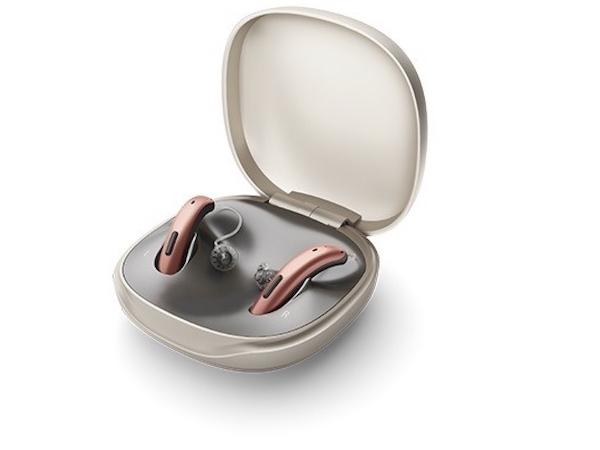
Struggling with hearing aid batteries? We have the solution
Hearing aids are crucial for those experiencing hearing loss. They allow you to maintain your independence and continue enjoying the things you love. However, dealing with traditional hearing aid batteries…
2 Min read
18th Sep 2023

Our top 3 discreet, invisible hearing aids at Worcester and Stratford-upon-Avon
In the world of hearing aids, there are numerous options that cater to different needs, lifestyles, and personal preferences. If you prioritise discretion and invisibility in your hearing aid, you’re…
3 Min read
13th Sep 2023
Tinnitus Week 2020
2 Min read
7th Feb 2020
What is Tinnitus?
Tinnitus is the perception of noises in the head/or ear which have no external source. Those living with the condition may have to endure a ringing, buzzing, hissing whistling or other noise. The sensation can be constant or intermittent and can vary in volume.
The British Tinnitus Association claims that 1 in 8 people in the UK are living with persistent tinnitus.
Is there a cure?
Currently there is no known cure for Tinnitus but there are a number of strategies that can be very helpful in managing the symptoms such as correcting any hearing loss and counselling.
What can be done about Tinnitus?
Tinnitus can’t always be prevented and there are many causes and reasons why people experience the condition. There are a variety of ways you can help protect yourself from tinnitus in certain situations such as using earplugs and listening through headphones at a safe level.
Help yourself from Tinnitus
Most cases of tinnitus are linked to hearing loss caused by damage to the inner ear, such as through normal ageing or exposure to loud noise. This type of hearing loss is called sensorineural.
For more information visit our Tinnitus Therapy page.
Contact your nearest centre and book your Tinnitus Assessment today.

Tom Dixon Director of Audiology
Share this article
Your Journey To Better Hearing
Related Articles

Join our Better Hearing Challenge
Rediscover Clear Conversations with Our Better Hearing Challenge Do you find yourself yearning to rediscover the joy of clear conversations? Are noisy environments making it challenging to hear speech, leaving…
3 Min read
3rd Jan 2024

Struggling with hearing aid batteries? We have the solution
Hearing aids are crucial for those experiencing hearing loss. They allow you to maintain your independence and continue enjoying the things you love. However, dealing with traditional hearing aid batteries…
2 Min read
18th Sep 2023

Our top 3 discreet, invisible hearing aids at Worcester and Stratford-upon-Avon
In the world of hearing aids, there are numerous options that cater to different needs, lifestyles, and personal preferences. If you prioritise discretion and invisibility in your hearing aid, you’re…
3 Min read
13th Sep 2023
The link between tinnitus and hearing loss
2 Min read
26th Sep 2019
The link between tinnitus and hearing loss
Medical research in the past few years has shown that those who have tinnitus also have some form of hearing loss.
A hearing loss can come in many different forms and in a range of different frequencies. For some, this hearing loss can be small or only affect a narrow band of frequencies as the result of a minor injury to the inner ear so that it does not result in hearing loss apart from the tinnitus or ringing ears experienced.
This could mean a hearing loss which cannot be measured by conventional hearing tests. In these instances, it is called a hidden hearing loss. A typical sign of hidden hearing loss is when it is difficult to hear because of background noise.
Absent audiological input
Medical research carried out in the past few years indicates that tinnitus is caused by absent or reduced nerve activity in the nerves which connect the damaged part of the inner ear to the central nervous system in the brain. This then leads to increased nerve activity as the signals travel to the hearing centre of the brain. When this increased activity reaches the hearing centre of the brain, a sound is heard even though the ear is not picking up any sound from its surroundings. This is called tinnitus.
Acoustic overexposure can both damage the hair cells in the inner ear as well as the nerves which send signals from the inner ear to the brain. Acoustic overexposure can result in noise-induced hearing loss.
The hair cells and the nerves can also be damaged by other things such as otoxic drugs and this can then lead to tinnitus.
Spontaneous signals in the brain
According to medical research, it is the absent audiological input from the inner ear to the brain which causes the hearing nerves between the inner ear and the brain to spontaneously send signals to the brain which are interpreted as sound – and this is tinnitus.
In most animal tests in which the animal had a hearing loss, the animals had tinnitus. Other tests have shown that humans with reduced audiological input are more likely to hear phantom sounds.
Other studies have however shown that treatment for hearing loss and with this the increase in audiological input – for example through digital hearing aids or operations – can reduce tinnitus or at least the tinnitus experienced. This can be because other audiological input wholly or partially “hides” the tinnitus. It can however also be because the spontaneous signals in the nerves are reduced.
Everyone with tinnitus therefore has some form of hearing loss. On the other hand, not everybody with a hearing loss also has tinnitus. The key thing for anyone with tinnitus to understand is that there are tinnitus treatment options.
If you have been struggling with tinnitus, you can book your full hearing assessment by contacting your nearest hearing centre
Worcester:
01905 617803
worcester@wshearing.co.uk
Stratford:
01789 264111
stratford@wshearing.co.uk
Source: https://www.hear-it.org/Close-relationship-between-Tinnitus-and-Hearing-loss

Tom Dixon Director of Audiology
Share this article
Your Journey To Better Hearing
Related Articles

Join our Better Hearing Challenge
Rediscover Clear Conversations with Our Better Hearing Challenge Do you find yourself yearning to rediscover the joy of clear conversations? Are noisy environments making it challenging to hear speech, leaving…
3 Min read
3rd Jan 2024

Struggling with hearing aid batteries? We have the solution
Hearing aids are crucial for those experiencing hearing loss. They allow you to maintain your independence and continue enjoying the things you love. However, dealing with traditional hearing aid batteries…
2 Min read
18th Sep 2023

Our top 3 discreet, invisible hearing aids at Worcester and Stratford-upon-Avon
In the world of hearing aids, there are numerous options that cater to different needs, lifestyles, and personal preferences. If you prioritise discretion and invisibility in your hearing aid, you’re…
3 Min read
13th Sep 2023
The invisible Lyric hearing aid and Tinnitus relief
2 Min read
7th Apr 2016
Lyric Can Be very Beneficial For Tinnitus, & Here’s Why
Get relief from your tinnitus 24 hours a day with Lyric
The latest studies conducted by Dr Jacob Johnson, the Associate Clinical Professor at the University of California, reveal that the extended wear (24/7) technology, may decrease the impact that your tinnitus has on your quality of life. The key feature of the benefit is that the Lyric provides sound stimulation all day every day. Let me explain why that is a good idea and why they can better for tinnitus relief than traditional hearing aids.
Hearing Aids & Tinnitus
Tinnitus is very often accompanied by hearing loss, in fact we believe much tinnitus may actually be a by-product of hearing loss. In most cases once the hearing loss has been treated with hearing aids, the tinnitus fades into insignificance.
However, once the hearing aids are taken out, the tinnitus returns. The problem is that most people will take their hearing aids out to go to bed. This is perhaps the quietest time of their day, which makes their tinnitus much more noticeable. Causing real difficulty with sleep, which frustrates and stresses them which increases their perception of their tinnitus. A vicious circle.
Lyric Hearing Aids Are Different
The real benefit of Lyric hearing aids for people with tinnitus and hearing loss is that they are worn 24/7. Therefore they are never taken out by the user and there is no let up in the relief provided by proper amplification. Even at bedtime, most users still have a noticeable difference in their perception of their tinnitus with Lyric.
It is this always on feature that makes Lyric very different from other hearing aids and other sound therapy for tinnitus. They work to give relief from tinnitus twenty four hours a day, seven days a week.
Risk Free Trial on Lyric Hearing Aid
In partnership with Phonak, the manufacturer of the 100% invisible hearing aid, we are offering a risk free trial of Lyric hearing aids. If you would like to know more about Lyric hearing aids in the Birmingham area, why don’t you call us on 01905 617803
Live life like you used to! Arrange for your 30 day risk free hearing aid trial in Worcester today by calling us direct on 01905 617803 or book your appointment now!
Lyric Authorised Partner
The Lyric hearing aid, the World’s first and only 100% invisible hearing aid, that can be worn 24/7 is available at Worcester Hearing Centre. We are proud to be a Lyric Authorised Partner.

Tom Dixon Director of Audiology
Share this article
Your Journey To Better Hearing
Related Articles

Join our Better Hearing Challenge
Rediscover Clear Conversations with Our Better Hearing Challenge Do you find yourself yearning to rediscover the joy of clear conversations? Are noisy environments making it challenging to hear speech, leaving…
3 Min read
3rd Jan 2024

Struggling with hearing aid batteries? We have the solution
Hearing aids are crucial for those experiencing hearing loss. They allow you to maintain your independence and continue enjoying the things you love. However, dealing with traditional hearing aid batteries…
2 Min read
18th Sep 2023

Our top 3 discreet, invisible hearing aids at Worcester and Stratford-upon-Avon
In the world of hearing aids, there are numerous options that cater to different needs, lifestyles, and personal preferences. If you prioritise discretion and invisibility in your hearing aid, you’re…
3 Min read
13th Sep 2023
Worcester audiologist in tinnitus warning
2 Min read
8th Nov 2013
A LEADING international audiologist has issued a warning to Worcestershire residents – protect your hearing or suffer irreparable damage.
Victoria Dixon, owner of Worcester Hearing Centre in The Cornmarket, is alarmed by the rise in cases of tinnitus, which is a ringing, buzzing or hissing noise in the ears that can be spasmodic or constant and distressing for the sufferer.
Ms Dixon, who has travelled throughout Europe and North America during a 20 year career as a hearing aid audiologist, said: “
We live in a noisy and stressful world and more people are starting to suffer spasmodic, and aggressive, bouts of tinnitus. It’s becoming a modern phenomenon. There is no known cure and it only takes two hours’ exposure to 85 decibels to start to create cochlear hearing loss, which shows just how delicate our ears are.”
A member of the British Society of Hearing Aid Audiologists, Ms Dixon is particularly concerned about young people who use headsets to listen to music or play computer games.
“The major problem is that loud noise is now becoming the norm,” she said.
“We all need to minimise decibel levels and learn to manage noise as tinnitus can be distressing and tiring. It can also affect personal and working relationships.
“We work with people from a wide range of professions such as telecommunications and heavy and civil engineering to help them manage tinnitus sufferers. This includes counselling and advice on how to deal with the situation.”
Ms Dixon’s top tips for avoiding tinnitus are:
- Take time to relax in a quiet environment
- Minimise stress levels
- Avoid prolonged exposure to noise over 85 decibels
- Careful management of oxotoxic medicine, which can result in hearing loss or ringing in the ears
Launched in November 2011, Worcester Hearing Centre is run by three generations – Ms Dixon, her son Tom and mum Jean Eaves – and offers independent advice on all hearing aid styles and manufacturers.
The centre also supplies musicians’ hearing protection instruments, shooting enthusiasts’ ear defenders, custom fit sleep and swim plugs and personal in ear monitors for MP3 players.

Tom Dixon Director of Audiology
Share this article
Your Journey To Better Hearing
Related Articles

Join our Better Hearing Challenge
Rediscover Clear Conversations with Our Better Hearing Challenge Do you find yourself yearning to rediscover the joy of clear conversations? Are noisy environments making it challenging to hear speech, leaving…
3 Min read
3rd Jan 2024

Struggling with hearing aid batteries? We have the solution
Hearing aids are crucial for those experiencing hearing loss. They allow you to maintain your independence and continue enjoying the things you love. However, dealing with traditional hearing aid batteries…
2 Min read
18th Sep 2023

Our top 3 discreet, invisible hearing aids at Worcester and Stratford-upon-Avon
In the world of hearing aids, there are numerous options that cater to different needs, lifestyles, and personal preferences. If you prioritise discretion and invisibility in your hearing aid, you’re…
3 Min read
13th Sep 2023
Worcester Hearing Centre tackles Tinnitus
2 Min read
12th Sep 2013
Tackling Tinnitus With Sound Therapy
Tinnitus is a major problem for some 10% of the population of the UK, according to the British Tinnitus Association.
At the Worcester Hearing Centre, Senior Hearing Aid Audiologist, Victoria Dixon, is pleased to announce they will be able to offer their clients the new Starkey Hearing Technologies: Tinnitus Multiflex hearing aid and Tinnitus management instruments.
Victoria said: “The new products will enable us to give a more effective treatment to clients that are troubled by the noise of their tinnitus”
According to the British Tinnitus Association there is a common belief that nothing can be done to help the tinnitus sufferer, but that is not true.
Victoria said: “A lot of people come to see me saying they have been told they have to learn to live with their tinnitus, which in itself can be very frustrating. Now there will be more positive help available to these people. Tinnitus masking instruments alone will never be the only answer for the tinnitus suffer, but with help, guidance, counselling, and the new technology in this field there is more help and relief available than ever”
Being able to use the latest Starkey Multiflex Tinnitus Technology, will create a customised and comforting sound stimulus that can be fine-tuned to sooth the unique, irritating sounds that are often heard by masking or covering over the tinnitus. This will often reduce the loudness of the tinnitus and take the sufferers mind off it so they can enjoy their life. There is a unique SoundPoint system that enables the client to actively take part in customising the instrument’s masking sound. The control offered makes it a very personalised system. Tinnitus is often a side effect of a person’s hearing deteriorating over time, thus hearing loss and tinnitus frequently need joint attention, and this new technology actually does that in a very effective way.
The Worcester Hearing Centre is holding two open days on March 25th & 26th where anyone suffering with tinnitus is invited to call in and discuss with the team their particular problem. Someone will be on hand all day to give help and advice. Victoria said: “Whilst the new technology will greatly help the lives of the tinnitus sufferers there will always be a certain amount of advice and counselling that is required for each individual client. We pride ourselves on being able to offer that type of advice and service for all our clients”

Tom Dixon Director of Audiology
Share this article
Your Journey To Better Hearing
Related Articles

Join our Better Hearing Challenge
Rediscover Clear Conversations with Our Better Hearing Challenge Do you find yourself yearning to rediscover the joy of clear conversations? Are noisy environments making it challenging to hear speech, leaving…
3 Min read
3rd Jan 2024

Struggling with hearing aid batteries? We have the solution
Hearing aids are crucial for those experiencing hearing loss. They allow you to maintain your independence and continue enjoying the things you love. However, dealing with traditional hearing aid batteries…
2 Min read
18th Sep 2023

Our top 3 discreet, invisible hearing aids at Worcester and Stratford-upon-Avon
In the world of hearing aids, there are numerous options that cater to different needs, lifestyles, and personal preferences. If you prioritise discretion and invisibility in your hearing aid, you’re…
3 Min read
13th Sep 2023


 Request An Appointment
Request An Appointment
